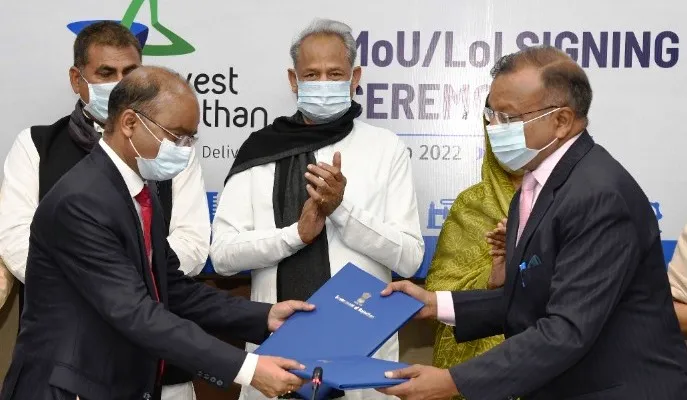Indian hydropower business wanting to deploy 10GW of solar over next 5 years in bargain worth US$ 6.7 bn.
- Indian state-run hydropower firm SJVN is intending to deploy 10GW of solar PV in Rajasthan over the next five years via a INR50,000 crore (US$ 6.7 billion) financial investment.

Verified during a signing ceremony in August but introduced this week (8 February), the strategies will see the solar projects improved land provided by the Rajasthan Renewable Energy Corporation after state authorities accepted the proposal. An MoU is because of be authorized quickly.
Electrical energy created from the projects will certainly be distributed via Power Purchase Agreements (PPAs), making the most of "competitive tariff-based possibilities available in the market", said SJVN chairman and also handling director Nand Lal Sharma.
Rajasthan-- one of the 3 states that make up the large bulk of PV deployment in India-- was an excellent area for the projects, said Sharma.
" The state has the largest solar energy capacity in the nation," he said. "It gets the greatest solar radiation (5.72 kWh per meter square daily) as well as also has the greatest variety of greater than 325 clear bright days in a year [sic] All these elements work in our favour of establishing the projects.".
Sharma claimed that, according to government climate objectives, the state-run business was reorientating to prioritise renewables deployment.
At COP26 India dedicated to 500GW of sustainable by 2030, consisting of 280GW of solar, as well as pledged to reach net zero by 2070, which was received with dissatisfaction in some quarters however remained in keeping with what many analysts forecasted provided the nation's power needs.
At the beginning of the month, the Indian government released it 'game altering' allocate the upcoming year, that included a mix of carrot and also stick measures to drive PV manufacturing and consequently release in the nation.
A Basic Customs Duty (BCD) on solar items has actually been developed to promote residential production, while an increasingly well-funded Production Linked Incentive (PLI) scheme has actually been designed to support the growth of an Indian industrial base for solar.
However, Fitch Solutions has alerted that India is at danger of a supply as well as need inequality for solar equipment if residential PV manufacturers are unable to meet the quantity and quality needed by project developers.
